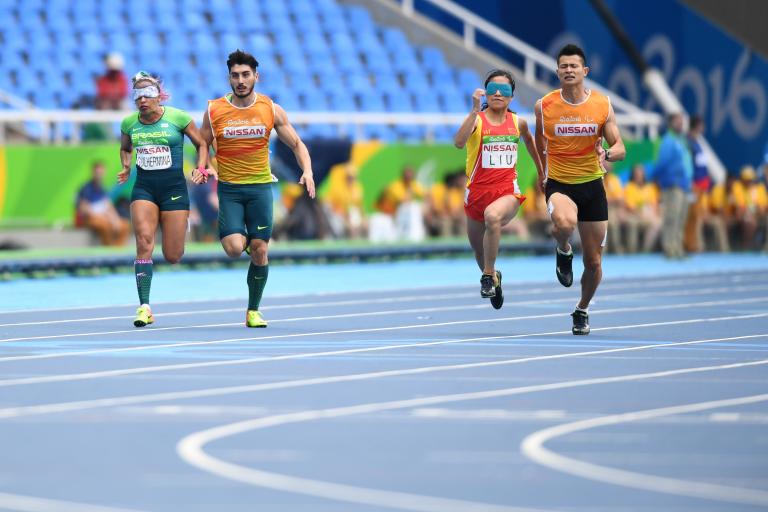
Being obnoxiously facetious here:
I am spectacularly non-athletic. I get out of breath quickly, I’m slow, I’m short. And I’ve passed those genes on to my kids, one of whom was in physical therapy as a toddler, the other in occupational therapy in his early elementary school years. The third is just skinny, and has always been at the very bottom of the weight chart. Do they meet the definition of “disabled”? No. But neither could they have any hope to compete in any sort of athletic competition, regardless of motivation and training. Should they demand a special competitive classification in order to have their shot at glory?
No, of course not. That’s stupid.
But how far do you take it?
The Chicago Tribune reports that a teenager sued in court to try to force the state of Illinois to create a special racing class for high school students with cerebral palsy. He lost, though he may appeal.
Some time ago, when the case of Caster Semenya, the intersex athlete whose participation in women’s track competitions was in dispute, was in the news, I dug into the issue of classifications, as it pertains to disabled athletes, to learn that it’s not as simple as the images of amputee-racers imply, but there’s a lot of grey in how competitors area classified, with racers with different levels of severity of cerebral palsy, for instance, racing in different classes, so that winning athletes were advantaged as much by being at the top ability-level for their category as by their grit and hard work.
The Tribune reports that the judges found that
forcing the IHSA to establish a new competitive category would be an unreasonable accommodation that would fundamentally alter the elite nature of the state meet.
But the dissenter on the three-judge panel, Ilana Rovner, took issue with her colleagues’ reasoning, saying the same rationale could be used to deny girls a place at the state meet because they’re slower than boys.
“If such a female athlete filed a lawsuit seeking to have a separate category for female runners with different qualifying times, she would not have been asking to be guaranteed a spot in the state finals, but rather she would be asking to have the same opportunity to participate as her male peers,” she wrote.
And it’s a given that a state track meet isn’t about providing all comers with the same “opportunity to participate,” but about recognizing the highest-achieving high school athletes. But, on the other hand, could one argue that the state has no business creating events in which all students do not have an equal opportunity to participate so that any such competitions for top athletes should be sponsored by private entities?
Something to chew on, anyway.
Image: Rio de Janeiro – A brasileira Terezinha Guilhermina participa da prova feminina de 100 metros T11, no primeiro dia das provas de atletismo nos Jogos Paralímpicos Rio 2016 (Tânia Rêgo/Agência Brasil); https://commons.wikimedia.org/wiki/File%3APrimeiro_dia_das_provas_de_atletismo_nos_Jogos_Paral%C3%ADmpicos_(29512996356).jpg; By Agência Brasil Fotografias [CC BY 2.0 (http://creativecommons.org/licenses/by/2.0)], via Wikimedia Commons












